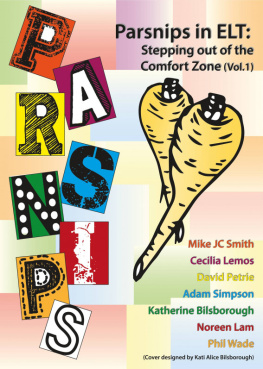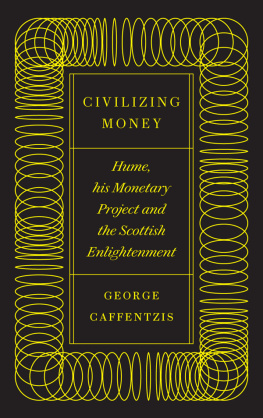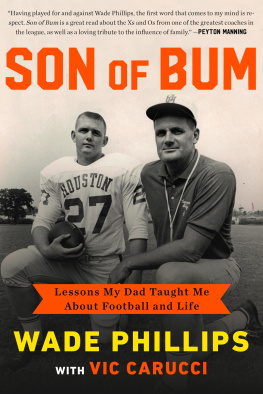Title Page
GEORGE WADE
16731748
By
Denise Chantrey
Publisher Information
Arthur h. Stockwell ltd
Torrs Park Ilfracombe Devon
Established 1898
www.ahstockwell.co.uk
Digital edition converted and
Distributed in 2012 by
Andrews UK Limited 2012
www.andrewsuk.com
Denise Chantrey, 2009
First published in Great Britain, 2009
All rights reserved.
No part of this publication may be reproduced or transmitted in any form or by any means, electronic or mechanical, including photocopy, recording, or any information storage and retrieval system, without permission in writing from the copyright holder.
British Library Cataloguing-in-Publication Data.
A catalogue record for this book is available from the British Library.
Arthur H. Stockwell Ltd bears no responsibility for the accuracy of information recorded in this book.
Acknowledgements
This book is dedicated to the late David Wade, who asked me to carry out research into the life of his ancestor, General George Wade. He encouraged me to write this book, and also helped with the research in London Offices, Ireland, and the Bodleian Library.
Several others have aided me: Bath Central Library, who helped me find information from their rare collection of books; Colin Johnston and his staff at the Bath Record Office, who helped uncover items of interest about Wades time in Bath; the Chevening Estate, who allowed me to include the letters between Stanhope and Wade; the dean and chapter of Westminster Abbey for permission to include a portrait of the monument in the abbey; the Scottish National Portrait Gallery, Edinburgh, who gave permission to reproduce the portrait of General Wade; John Freeth, who carried out all the photography in Scotland; Prior Park College for allowing me to include photographs of the panels on Wades monument; and my grandson, Lee Matthew Chantrey, who was always on hand to give advice on computer problems. I would also like to give a special thank you to Alison Bowers, who not only proof-read the book but answered all my many queries, and supported me throughout. In addition, a number of individuals have also advised and assisted me in various ways, among them, Rick Norton (norton@rictor.freeserve.co.uk) Tumult in Glasgow; Major J. L. Raybould, TD, webmaster B&C Norfolk Section Editor, for the Almanza poem; Mark Warner (mark@teachingideas.co.uk) for the illustration of a Roman road; Alastair McIntyre (alastair@electricscotland.com) for General Wades report to King George. Finally, I thank my immediate family for putting up with the subject of Wade and for listening to my groans over all the problems of writing.
Every effort has been made to acknowledge correctly and contact the source and/or copyright holders of information on the life of General George Wade. I apologise for any unintentional errors or omissions, which will be corrected in future editions of this book.
Introduction
George Wade would be the last to consider himself a military genius. He was not a Wellington or a Marlborough; but he was brave, wary, generous and methodical. Neither can he be numbered among our great politicians he was probably too kindly a man to take his place with either class. It is probable that had he sought election as MP for Bath on a democratic basis, as now understood, he would still have been elected. He was a man honoured in Bath and the country at large. He was given an unpleasant job to do in Scotland, yet he did it without offence. He enforced the Disarming Act, yet he incurred no ill will. As Stanhope in his History of England says: that he became personally popular even whilst faithfully obeying the most distasteful orders is remarkable, and testifies to his judicious and conciliatory nature. He was King to his highwaymen, paying them well and treating them with consideration. He concerned himself with matters officially outside his brief, such as education, and on behalf of architecture did what he could to save Shawfield, the only house designed by Colen Campbell in Scotland, which was sacked in the Malt Tax Riots in Glasgow in 1725. Wade was a man who made and kept many friends who might easily have been his enemies. He was straightforward and honest, and made a point of seeing the other mans point of view. He was a flamboyant character and he loved cards, wine, women, comfort, good furniture and art. He had friends in high places but gambled in low dives. He was vain and often commissioned portraits of himself, which he gave to family and friends.
The Highland roads and bridges are his best memorial. They may have been built for military purposes, but they were ways for folk moving out of the Highlands to learn about the world. In the light of his career the dark days of 1745 are largely forgotten.
Prologue
Branches of the Wade family were settled in the West Country from very early days. Wills and records from the 13th century show Wades holding lands in Chew Magna, Wraxall and Kingston Seymour on the Somerset side of Bristol; also in Thornbury, Rockhampton, Stone, Berkeley and Fylton-le-Hayes.
The Wades of Fylton-le-Hayes bore arms azure on a saltire between four fleurs-de-lis: their motto was Pro Fide et Patria (For Faith and My Country). Thomas Wade of Fylton and his wife, Margaret Hollister of Almondsbury, bought from Lord Berkeley in 1563 part of the Manor of Brokenborrow in Wiltshire, including the townships of Almondsbury, Hampton, Patchway, Compton and Henbury. From Thomas and Margaret descended three sons: John Wade, who became a colonel in Cromwells army; Thomas Wade, later a barrister at law; and William Wade, who may have been the merchant instrumental in sending provisions and troops to Ireland during the Civil War.
Colonel John Wade served Oliver Cromwell, fighting with Hortons Brigade in Wales and acting as deputy governor during the siege of Gloucester. He successfully defended the city against the Royalists and was highly commended by the Protector. At other times he was busy providing men and munitions for the army and navy; and as overseer of the Forest of Dean he was active in blowing shot, forging iron and casting guns for the Admiralty.
In the House of Commons Journal it is recorded that Colonel John Wade was engaged in providing men for Ireland and sending oats and wheat to the value of 2,000; and in 1651, in recognition of his loyalty to the Lord Protector, Colonel Wade was given lands in Wales as a reward for his service in the Welsh Campaign. During the Commonwealth years he was appointed governor of the Isle of Man.
Also serving in Cromwells New Model Army was William Wade, who was promoted to the rank of major in 1649 at the garrison in Bristol ( ref: Clarkes MSS ); and for his services to the cause he was given lands in Kings County and Westmeath in Ireland. Major William Wade may be the son of William Wade, a merchant who was busy during the Civil War in sending troops and provisions to Ireland, as noted in the House of Commons Journal in 1643:
That a sum of six hundred and fifty pounds to be paid to William Wade and John Parrott, merchants or their assignees for wheat to Ireland.
And in 1649:
another entry on the humble petition of William Wade was this day read... ordered that it be referred to the committee for Irish Affairs at the Council of State to examine the true state of the debt of fourteen hundred and ninety pounds viz six hundred and fifty pounds due by Ordinance of the twentieth day of May 1643 for six hundred and forty pounds and the other of two hundred pounds and to give order for the present payment of what shall appear to be due to the petitioner, or his assigns out of the assessment of fifty thousand pounds for Ireland.
The Prebendary Hayes Robinson (a descendant of Jerome Wade of Westmeath in Ireland) and Commander Evans of Nailsea Court in Somerset occasionally amused themselves in an endeavour to find a common ancestor, and they came very near to establishing his existence. The Reverend Robinson presented a portrait of General Wade and today it can be seen at Nailsea Court beside the portraits of Colonel John Wade and his wife Ann.
Next page










